If you’re anything like me, as I get older, theme parks start becoming less fun and no longer as appealing. All of the rides begin to feel repetitive with roller coaster after roller coaster, while other aspects, such as the average-tasting pricey food and the long queues, further add to my disdain for amusement parks.
But that all changed when I experienced ESCAPE Ipoh, which, unlike traditional amusement parks, offered a refreshing but nostalgic take on fun and adventure.
After spending an exhilarating day, we were eager to sit down with the visionary behind it all, Dato' Sim Choo Kheng, to uncover what inspired him to revolutionise the theme park industry.
To be outstanding, you need to stop conforming
In an interview with Rojak Daily, Dato' Sim opened up about his childhood and growing up in a village in Penang.
Sim, who comes from a family of nine children, said that he was definitely the one that stood out the most amongst his siblings. Despite how his naughty behaviour might have been construed as unfavourable, Sim believes that his restless nature is the reason for his success.
“I was lucky because my mother was taking care of the nine of us. She didn't have time. She was never able to control me. So, she never snuffed up the creativity in me. But you know, in today’s world, behaviour similar to what I had would be put to a stop.”
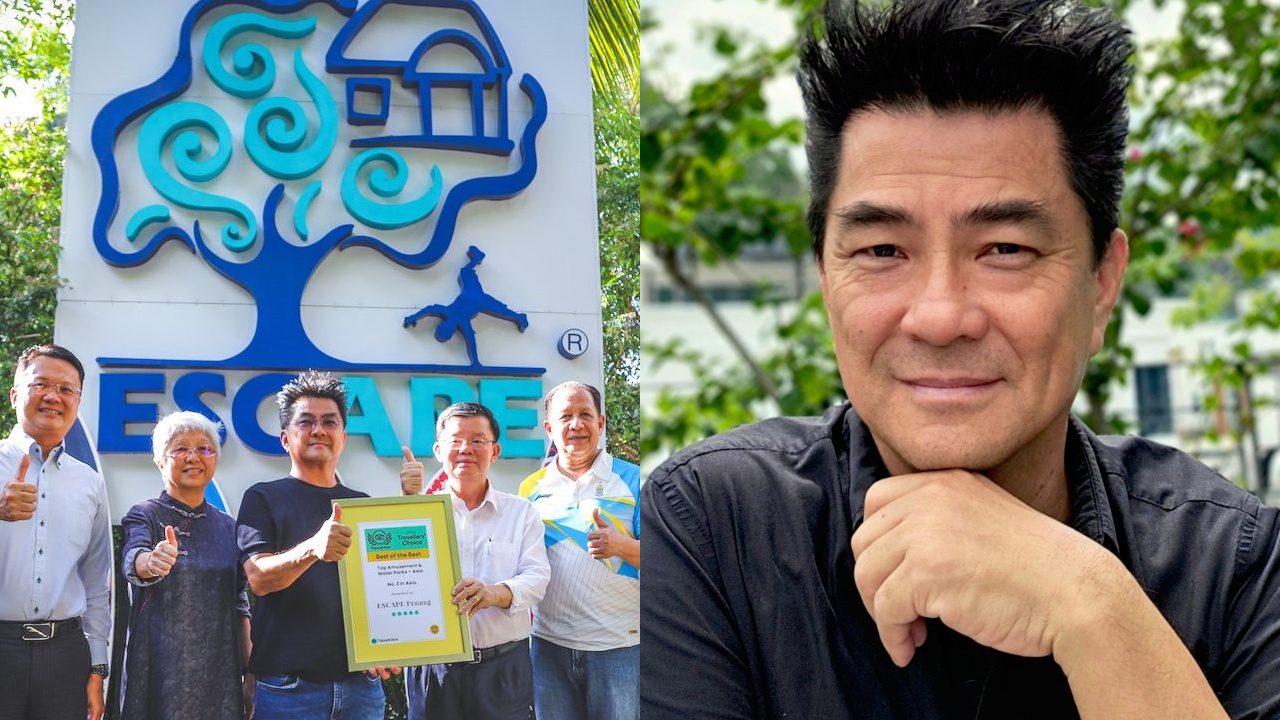 Image Credit: Sim Leisure Group
Image Credit: Sim Leisure Group
Meanwhile, he also shared his thoughts on how our education system, our need to conform, and our priority to seek out what’s stable and secure to survive have caused the lack of creative minds.
“The conventional school of thought is to go to school, be brainwashed for the next 15 years, study well, get more As, and you become a doctor, engineer, accountant, lawyer. That is so wrong. Success is going against the law of nature because we have been wired to survive. Success is about becoming uncomfortable.”
A disruptive idea
Sim founded Escape Park through Sim Leisure Group, which develops, operates, and manages theme parks worldwide, including LEGOLAND in Denmark and Malaysia, Universal Studios in Singapore, Yas Waterworld in Abu Dhabi, and Ski Egypt in Cairo.
But, despite his extensive experience in the theme park industry, it took a while for the idea of ESCAPE to be accepted.
As someone who loves going beyond the line, Sim questioned why the theme park industry hasn’t progressed at all, with most relying on the traditional model of relying on bigger and faster roller coasters in hopes of pulling in crowds.
“The roller coaster has been around for so long. It's since the beginning of time. I always tell people that a faster roller coaster is still a roller coaster.”
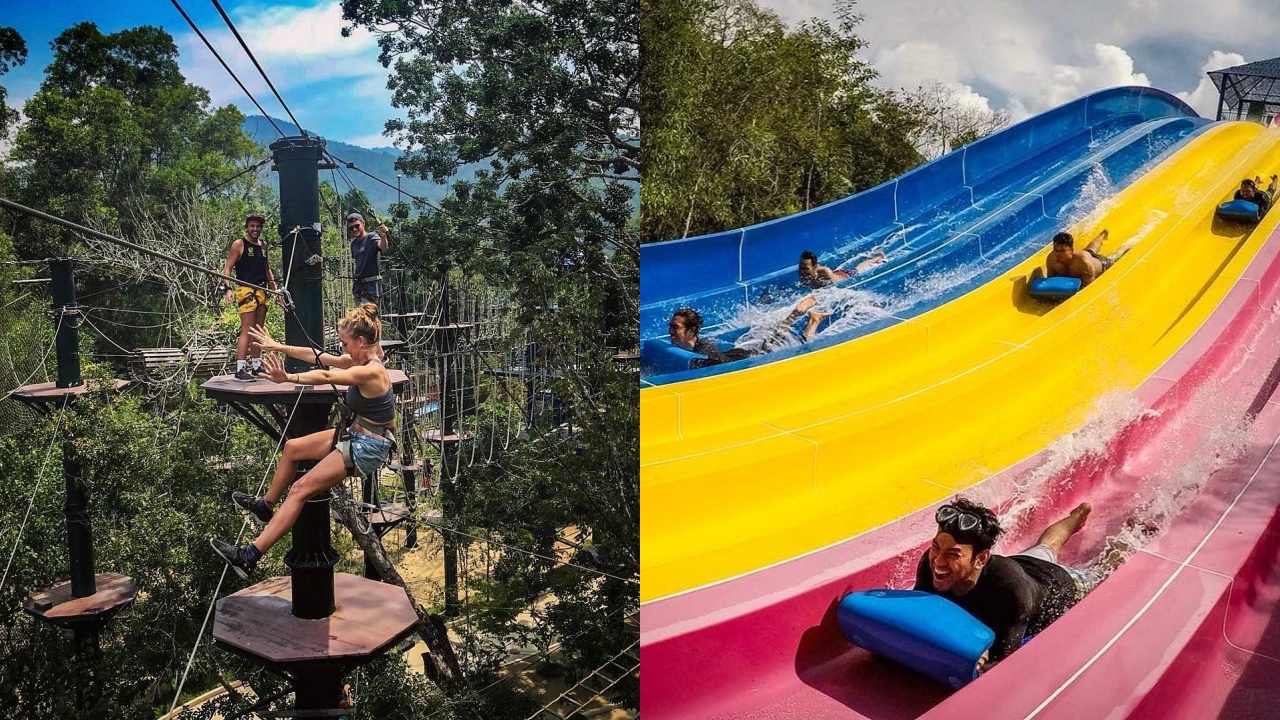 Image Credit: ESCAPE
Image Credit: ESCAPE
The inspiration for ESCAPE eventually struck him in 1998 when he was working on a project in Vietnam and living in a village outside Ho Chi Minh City. There, he embraced the local culture and familiarised himself with the locals.
“I was hanging around with the locals, and I saw how they played, running around without shoes, climbing trees, flying kites.”
He added, “Then I was thinking to myself, why can't we build a theme park that's based on how children used to play? That's the origin of fun, right?”
With that idea in mind, Sim continued trying to convince his clients all over the world to test it out. However, he said that there was significant pushback on the idea, as it was viewed as “uncool.”
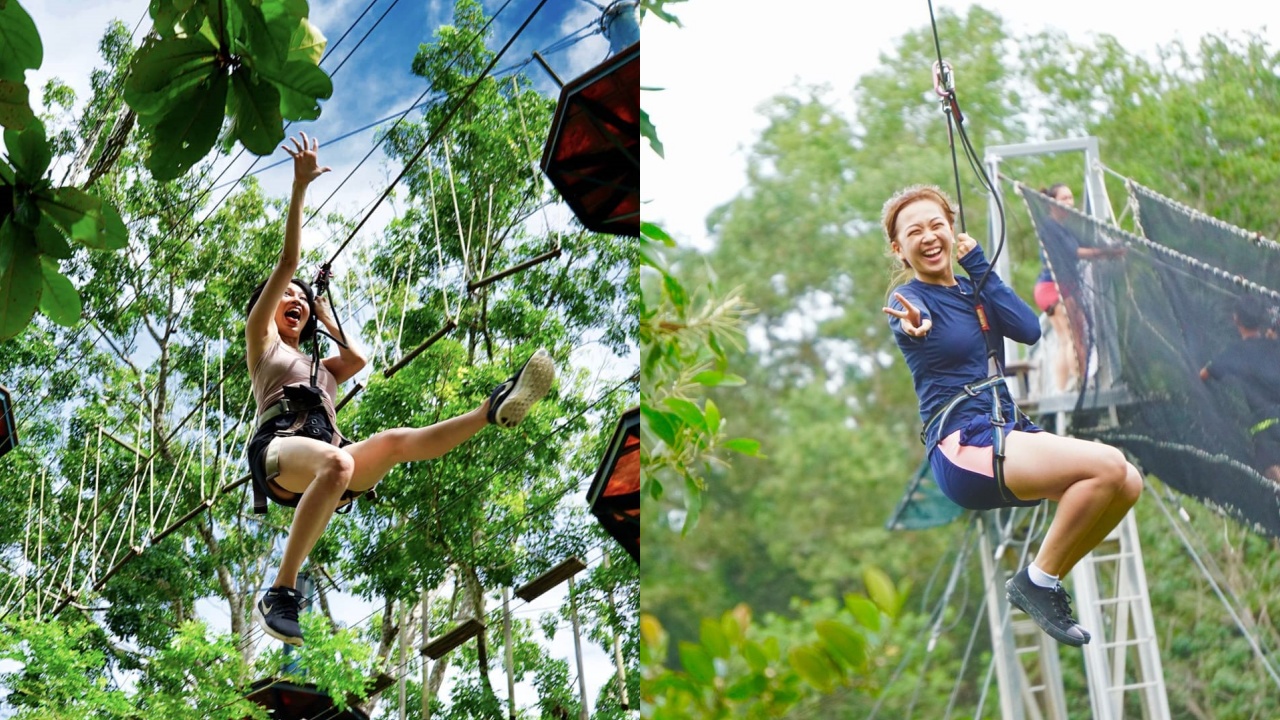 Image Credit: ESCAPE
Image Credit: ESCAPE
“The kampung idea is so uncool. You tell your friend that you went back to your kampung, and it's just not cool. But, you say to your friends that you were in Disney Tokyo or Orlando, that sounds very different. So because of that, nobody bought the idea.”
Things all changed in 2009 when the then-new Penang state government called for a new tourism vision, and Sim was called to return home to help develop the state by creating a theme park.
He was told that he should take part in the tender for a piece of land. Sim admitted that this proved to be complicated. He wasn’t able to secure a loan from banks because they didn’t believe in his vision for ESCAPE.
“Unfortunately none of the banks believed that such an idea would work. Because you know, bankers, if there are no precedents, they would not touch,” Sim explained, adding that he instead decided to use all of his savings for the project.
ESCAPE Penang was eventually completed in 2012; however, its first few days weren’t smooth sailing, as he recalled only receiving less than 30 visitors on launch day.
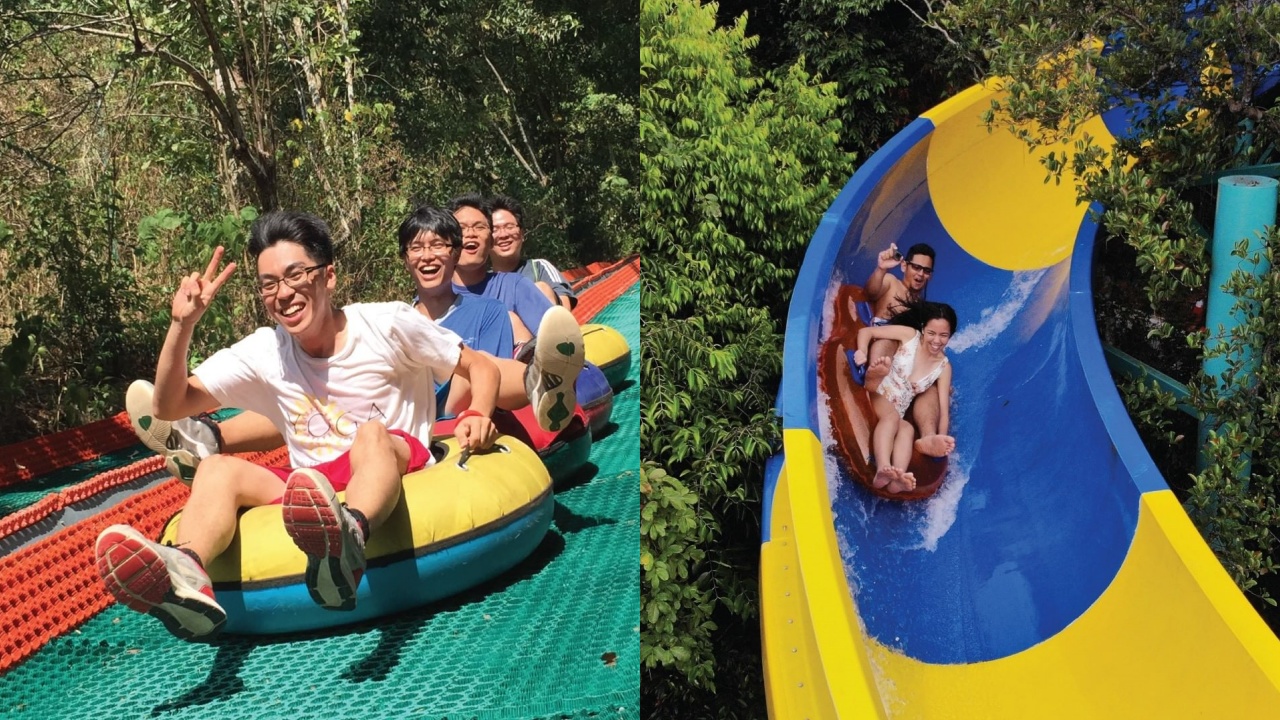 Image Credit: ESCAPE
Image Credit: ESCAPE
“The first customer came in after one hour. I even got a VIP and told him, as a symbolic gesture, that he could give away a one-year membership to our first customer. It was very embarrassing because he was standing around for one hour!”
Fortunately, things improved in the following days as word spread about the opening of ESCAPE Penang, which now receives thousands of visitors daily.
The blessings of COVID-19
The tourism and entertainment industries were the hardest hit by the COVID-19 pandemic. However, Sim believes that the pandemic was a blessing in disguise for him and his business.
“COVID was great because it restarted and pulled everybody back to the starting block. COVID also weeded out the weak ones so that there's less competition,” shared Sim, who added that although his business was severely affected, they were able to survive the storm.
He shared that COVID-19 gave them opportunities to expand, including their acquisition of KidZania Singapore for a discounted price of around RM380,000.
Surprisingly enough, the idea for ESCAPE Ipoh was also born during the pandemic during a chance encounter with a businessman in 2019. Sim confessed that Ipoh was initially not in their plans at all until an acquaintance of his who owned a plot of land in Batu Gajah kept persisting in bringing him to the land.
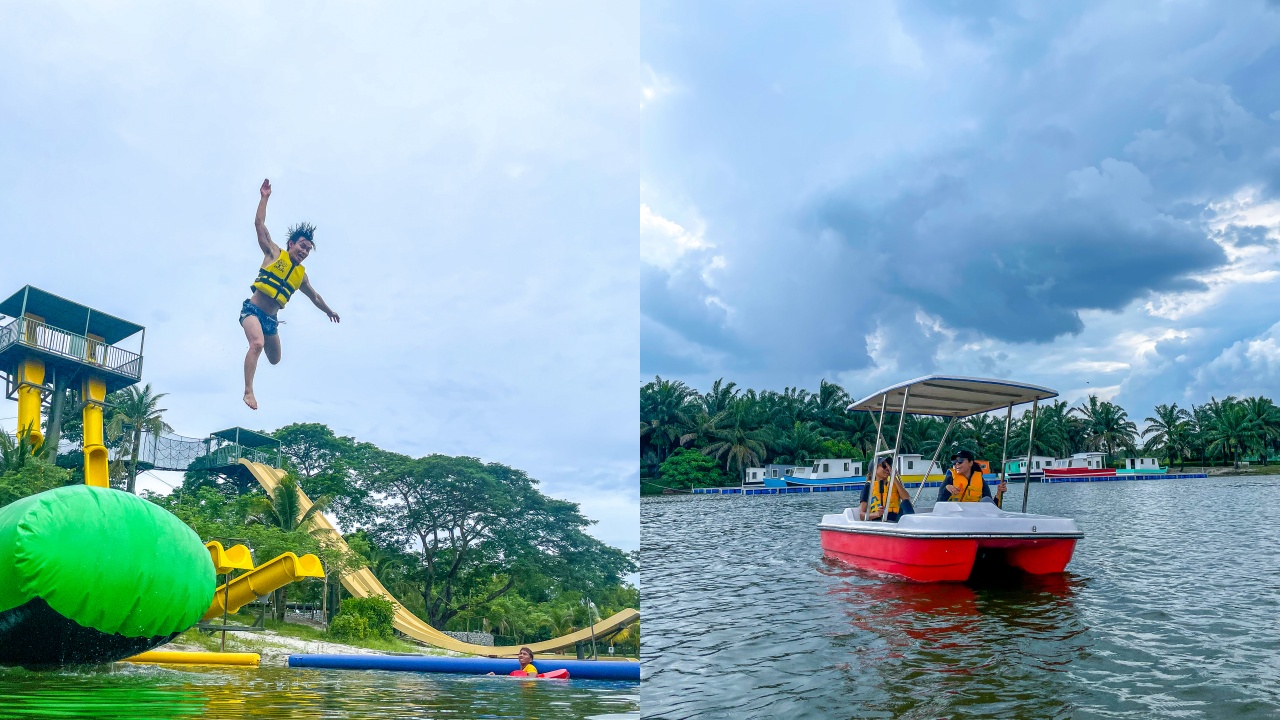 Image Credit: ESCAPE
Image Credit: ESCAPE
“I kept saying no to him until one day, in July 2020 while I was travelling between PJ and Penang, I finally decided to visit the place. I was impressed by the scenery.”
However, Sim decided to reject his request for him to invest in the land. Despite multiple rejections, the businessman persisted, and eventually, in 2021, Sim agreed to turn the land into what is now known as ESCAPE Ipoh.
The ex-mining land received the same treatment as ESCAPE Penang and the area's beauty was primarily untouched. “ESCAPE will not deviate from its original intention which is to not harm nature. Now we have turned the place around and launched in early 2024.”
Similar to the obstacles he faced during the launch of ESCAPE Penang, Sim believes that the real challenge lies in bringing tourism to Ipoh, which he thinks is still in its infancy.
“The idea is to tell Malaysians that hey, let's get used to this idea of going away for a couple of days, going away for the weekend or school holiday to somewhere we get the opportunity to get reconnected with nature,” he shared.
Going back to basics
Sim said that he can foresee tremendous growth in tourism in the future, especially retro-eco tourism, which ESCAPE’s parks specialise in.
He explained that although COVID-19 had a lasting impact on everyone, making us want to reconnect with nature and depend less on technology, no one can deny the significance of technology.
This is why he plans to marry together elements of what makes ESCAPE’s parks so fun with technology such as virtual reality (VR) and augmented reality (AR).
“Entertainment could not be indoors because it's just too expensive. It's cost-prohibitive to build an indoor theme park or entertainment centre. But things have changed. Retail is gone, people no longer go to shopping malls as we used to.”
Based on his observations, Sim said that shopping mall owners now need to find new ways to attract the public, and he suggests that the traditional shopping mall concept is becoming outdated.
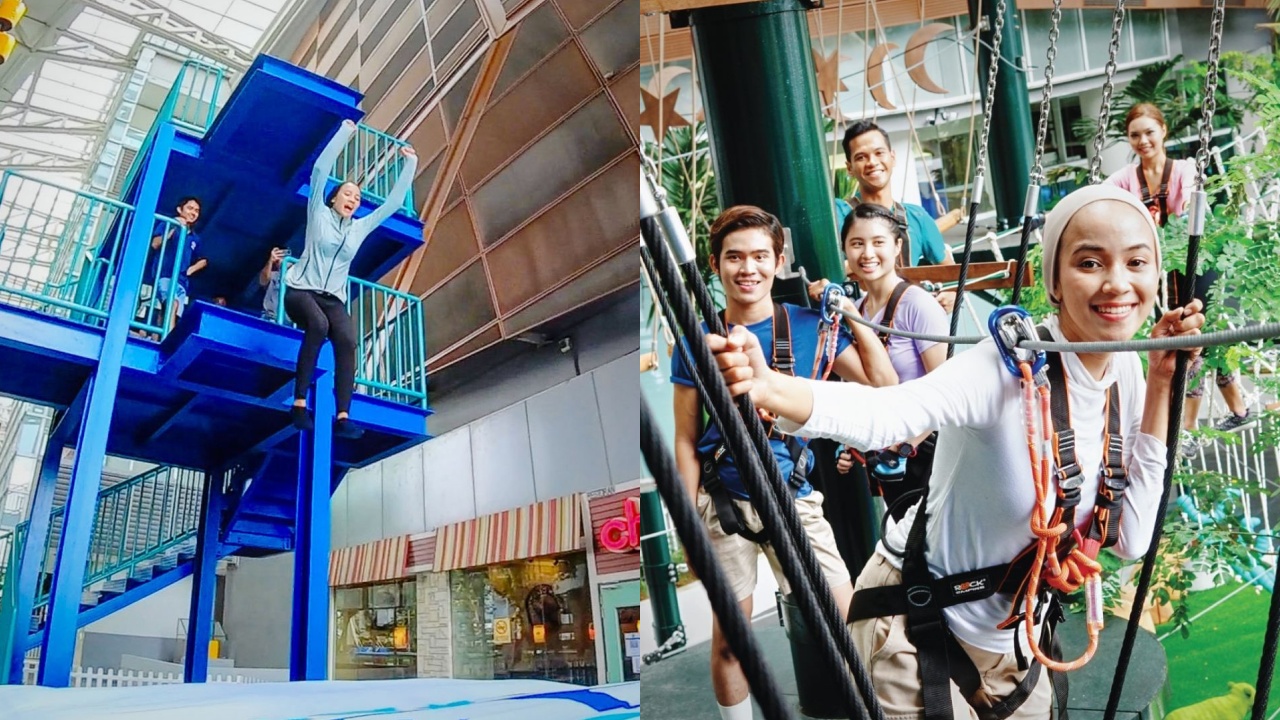 Image Credit: ESCAPE
Image Credit: ESCAPE
He shared that with Klang Valley’s abundance of shopping malls, the challenge now lies in providing a fresh and compelling reason for people to visit these spaces. Sim shared that they are currently looking to work with shopping malls to turn unused retail spaces into indoor entertainment spaces.
“What we are doing, family entertainment, that cannot be substituted. You cannot order online. Or you cannot play at home,” he shared, stating that what they plan to launch will be a new way of having fun with VR, such as through the development of VR-based roller coasters.
“I believe VR roller coasters will uplift their relevance. The beauty of this is that the experience is more immense than an actual roller coaster. We've been brainwashed to believe that it's great fun. It's not. Most people feel sick after.”
On his vision for the future, Sim said that this would be the future of family entertainment, which he calls “playmalls”. “I will only do a few, convert a few malls, probably taking over 30-40% of the space and putting all of the games we have.”
Sim said that this will be the future of family entertainment, which will also give the public a reason to revisit malls.
“If you don't understand what the new generation wants, you're going to be out of business soon. Unless you sell coffins,” said Sim with a chuckle.
For more information on ESCAPE, check out their website.
Featured Image Credit: ESCAPE, Sim Leisure Group






